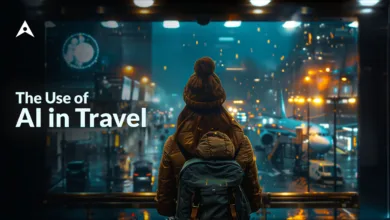AI Travel Planners: How Artificial Intelligence Is Transforming the Way We Book and Experience Trips

From custom itineraries to real-time language help, AI travel tools are reshaping how we explore the world. Discover the latest trends and what they mean for travelers and the industry.
Booking a trip used to mean hours comparing flights, searching hotel reviews, and organizing activities. Today, artificial intelligence is changing that reality, offering travelers personalized itineraries, predictive insights, and even real-time language support. This article explores how AI is revolutionizing travel planning—and what travelers should know.
The Rise of AI in Travel
Smarter Itineraries
Modern AI travel planners, like Google’s Bard, ChatGPT-based tools, and dedicated travel apps, can build custom itineraries based on your interests, budget, and travel dates. Instead of sifting through endless blogs and reviews, travelers receive a curated plan tailored to them.
Dynamic Recommendations
AI can adjust plans on the fly. Bad weather in Rome? Your travel assistant might suggest indoor museums instead of walking tours. Flight delayed? AI tools can rebook hotels or change restaurant reservations.
Why Travelers Love AI Planning
Personalization at Scale
AI tools learn from your preferences: favorite cuisine, past destinations, even walking speed. The result: itineraries that feel unique rather than generic.
Time Savings
Instead of spending weeks researching, travelers can plan trips in minutes, freeing time to focus on the journey rather than logistics.
Beyond Planning: AI on the Road
Language Translation
Apps like Google Lens and ChatGPT can translate menus, signs, or real-time conversations, making travel in non-English-speaking countries easier than ever.
Navigation and Local Tips
AI-enhanced maps suggest lesser-known restaurants, local events, and even safest walking routes based on real-time data.
Industry Impact
Changing How Travel Agencies Work
Traditional agencies increasingly use AI tools to deliver faster, more customized packages to clients, blending human expertise with machine efficiency.
Competition and Innovation
Large platforms like Booking.com and Airbnb invest heavily in AI, while startups offer niche tools for solo travelers, families, or adventure seekers.
Challenges and Concerns
Privacy and Data
AI needs data—travel history, preferences, even spending habits—to work well. Travelers must weigh convenience against privacy risks.
Over-Reliance on Technology
Some critics warn AI could discourage spontaneous exploration, turning travel into a checklist rather than an adventure.
The Future: AI as Your Travel Companion
Expect AI tools to become even more interactive: voice-activated assistants that follow you through cities, suggest hidden gems, and answer questions on demand.
Conclusion
Artificial intelligence isn’t just simplifying travel planning—it’s redefining the entire travel experience. For travelers, it means smarter, more flexible journeys. For the industry, it’s a wave of innovation still in its early stages.
Tags: #AITravel #SmartItineraries #TravelTech #DigitalNomads #FutureOfTravel




